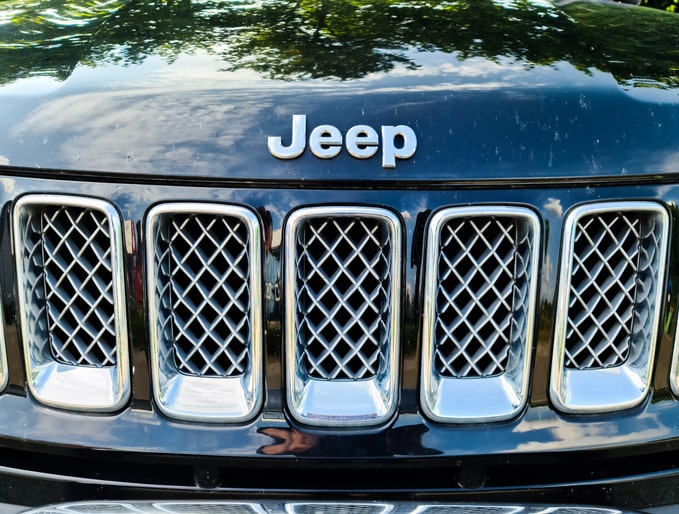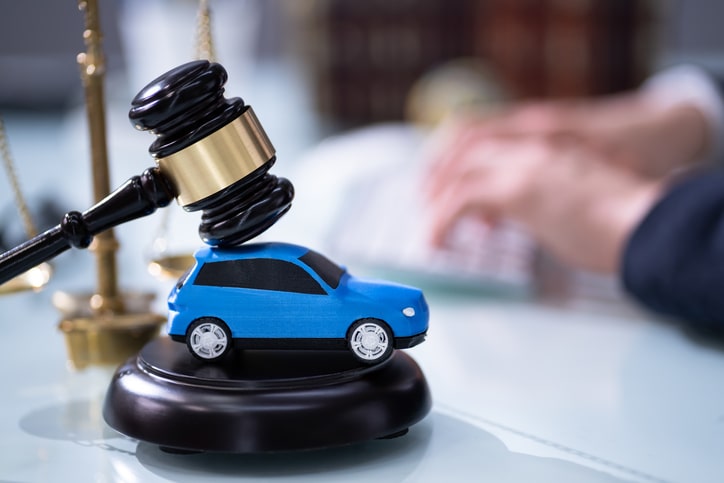This website uses cookies so that we can provide you with the best user experience possible. Cookie information is stored in your browser and performs functions such as recognising you when you return to our website and helping our team to understand which sections of the website you find most interesting and useful.
In Need of a Jeep Lemon Law Attorney?
Jeep, a beloved American brand known for its rugged and adventurous vehicles, has built a reputation for producing capable and reliable automobiles. However, even with their strong heritage, Jeep vehicles can sometimes fall short of expectations, leaving consumers with a “lemon” in their hands. When a newly purchased or leased Jeep fails to meet quality and performance standards, it is crucial for consumers to understand their rights under California’s lemon law and seek the assistance of an experienced Jeep lemon law lawyer.
Contact Bohloul Law, APC to set up an initial consultation. Our attorney will return your call promptly. You can call today or fill out our contact form.

The Lemon Law Claim Process in California
When a consumer suspects their Jeep may be a lemon, the first step is to notify the manufacturer of the issue and allow them a reasonable number of repair attempts. If the manufacturer fails to resolve the problem after two attempts, the consumer may be eligible to file a lemon law claim.
The legal process involves gathering evidence, such as repair records and correspondence with the manufacturer, to build a strong case. An experienced Jeep lemon law attorney can guide consumers through this process. We ensure your rights are protected and seek the appropriate remedy, including a refund, replacement vehicle, or monetary compensation.
Common Defects in Jeep Vehicles
While Jeep is known for producing high-quality vehicles, certain models have been prone to defects that may give rise to lemon law claims. Some of the most common issues include:
- Engine problems: Certain Jeep models have experienced engine issues, including stalling, misfiring, and oil leaks. These problems can compromise the vehicle’s performance and safety, making driving difficult or dangerous.
- Transmission failures: Some Jeep models, particularly the Cherokee and Renegade, have been plagued by transmission problems. This includes rough shifting, slipping gears, and complete transmission failure. These issues can render the vehicle undrivable and require costly repairs.
- Electrical system malfunctions: Jeep vehicles have also been known to suffer from electrical system issues, affecting components such as the starter, alternator, and battery. These problems can cause the vehicle to fail to start or experience sudden power loss while driving.
- Suspension and steering issues: Certain Jeep models, like the Grand Cherokee and Compass, have faced suspension and steering problems, resulting in a rough ride, uneven tire wear, and difficulty controlling the vehicle. These issues can compromise the driver’s ability to operate the vehicle safely.
Jeep Models with Frequent Lemon Law Issues
Based on our experience handling lemon law cases, several Jeep models have shown a higher incidence of defects and problems that lead to lemon law claims.
- Jeep Wrangler (JK and JL generations): The Jeep Wrangler, particularly the JK and JL generations, has been known to experience engine issues such as stalling and misfiring. These problems can cause the vehicle to lose power unexpectedly, putting drivers in dangerous situations. Additionally, steering problems like the notorious “death wobble” have been reported, which can cause the vehicle to shake violently at high speeds. Electrical system malfunctions have also been observed in these Wrangler models, affecting various components and leading to unreliable operation.
- Jeep Cherokee (KL generation): The Jeep Cherokee, especially the KL generation, has faced transmission failures and rough shifting. These issues can make driving difficult and uncomfortable and, in some cases, render the vehicle undrivable. Engine oil leaks and coolant loss have also been observed in the Cherokee, which can lead to engine damage if not addressed promptly. Electrical issues affecting screens and sensors have also been reported, causing owners frustration.
- Jeep Grand Cherokee (WK2 generation): The Jeep Grand Cherokee, particularly the WK2 generation, has experienced suspension and steering problems that can compromise handling and safety. Owners have reported issues such as uneven tire wear, vibrations, and difficulty controlling the vehicle. Engine stalling and misfiring have also been observed, which can be disconcerting and potentially dangerous. Transmission slipping and jerking have been experienced by some Grand Cherokee owners, making for an unpleasant driving experience.
- Jeep Renegade: The Jeep Renegade has been prone to transmission issues, including hard shifting and complete failure. These problems can leave drivers stranded and facing costly repairs. Engine problems, such as stalling and loss of power, have also been reported in the Renegade, which can be particularly concerning in high-traffic or high-speed situations. Electrical malfunctions affecting various systems have also been noted, leading to unreliable operation.
- Jeep Compass: The Jeep Compass has faced suspension and steering issues that can make driving difficult and uncomfortable. Owners have reported problems such as excessive body lean, uneven tire wear, and difficulty maintaining control of the vehicle. Engine misfires and stalling have also been experienced by Compass owners, which can be frustrating and potentially hazardous. Transmission slipping and rough shifting have also been reported, detracting from the overall driving experience.
If you think you might have a Jeep that is a lemon, call Bohloul Law, APC today.
Recent Jeep Recalls
In addition to the issues that may lead to lemon law claims, Jeep has also been subject to several recent recalls due to safety concerns. In 2022, Jeep recalled many Jeep Wrangler and Gladiator models due to a potential fuel leak that could lead to a fire risk. The recall affected the 2020-2022 Wrangler and the 2020-2021 Gladiator models equipped with the 3.0L diesel engine.
Another significant recall in 2021 involved over tens of thousands of Jeep Cherokee and Compass models due to a transmission issue that could cause the vehicle to unexpectedly shift into neutral, increasing the risk of a crash. The recall affected the 2014-2017 Jeep Cherokee and the 2017-2018 Jeep Compass models, which were equipped with a 2.4L engine and nine-speed automatic transmission.
In 2020, Jeep recalled many Jeep Wrangler and Gladiator models due to a potential clutch pressure plate overheating issue that could lead to a transmission case fracture and possible fire risk. The recall affected certain 2018-2020 Wrangler and 2020 Gladiator models with manual transmission.
These recalls highlight the importance of staying informed about potential issues with your Jeep vehicle and taking prompt action to address any safety concerns.
Manufacturer Responsibilities
Under California’s Lemon Law, Jeep’s manufacturer, Fiat Chrysler Automobiles (FCA), has a legal obligation to address and resolve defects that substantially impair the use, value, or safety of the vehicle. If FCA fails to repair the vehicle after a reasonable number of attempts, they must offer the consumer a refund or a replacement vehicle.
FCA must also clearly inform consumers about their rights under the Lemon Law and maintain accurate records of repairs and communications related to the defective vehicle. Failure to fulfill these responsibilities can result in legal action and penalties.
Our Lemon Law Attorney Also Focuses on the Following Areas:
- Alfa Romeo
- Audi
- Nissan
- Volkswagon
- Fiat
- BMW
- Mercedes-Benz
- Chrysler
- Chevrolet
- Dodge
- Kia
- Jaguar
- GM
- Acura
- Cadillac
- Honda
- GMC
- Volvo
- Tesla
Our California Lemon Lawyers Are Here for You

When a Jeep fails to live up to its reputation for quality and reliability, California’s Lemon Law provides consumers with a powerful tool to seek relief. Understanding the common defects that may affect Jeep vehicles, and the legal process involved in pursuing a lemon law claim ensures that consumers can take proactive steps to protect their investment and ensure they are not left with a sour taste from their lemon Jeep.
At Bohloul Law, APC, our experienced Jeep lemon law lawyer is committed to guiding consumers through the complexities of the legal system and achieving the best possible outcome for their case. If you suspect you have a lemon Jeep, do not hesitate to reach out to us via (310) 525-5116 for a free consultation and take the first step toward obtaining the justice you deserve.
What Our Clients Say
LATEST BLOG POSTS
Ford F-150 Lightning EV: Major Dealer Incentives Signal Premium Buying Opportunity
In a notable shift within the electric vehicle market, Ford Motor Company has launched an unprecedented dealer incentive program for its F-150 Lightning electric pickup truck. This development presents a unique opportunity for consumers looking to purchase this innovative vehicle. Let us explore the details of this significant market movement
Continue ReadingHonda’s Massive Recall and What Vehicle Owners Need to Know
In a startling development that has sent ripples through the automotive industry, Honda has announced a sweeping recall affecting nearly two million vehicles. This recall, centered on a critical steering issue that could lead to accidents, has left many Honda and Acura owners wondering about their next steps. Bohloul Law,
Continue ReadingCan I File a Lemon Law Claim on a Used Car in California?
When you purchase a used car, you hope it will serve you reliably for years to come. But what happens when that car turns out to be a lemon? Many people find themselves in this frustrating situation, wondering if they have any legal recourse. The good news is that California's
Continue Reading
TURNING A SOUR SITUATION INTO A SWEET DEAL
If you have car problems that keep coming back, you may be entitled to cash compensation. California Lemon Law has guaranteed your right.

Get A Free Case Evaluation












